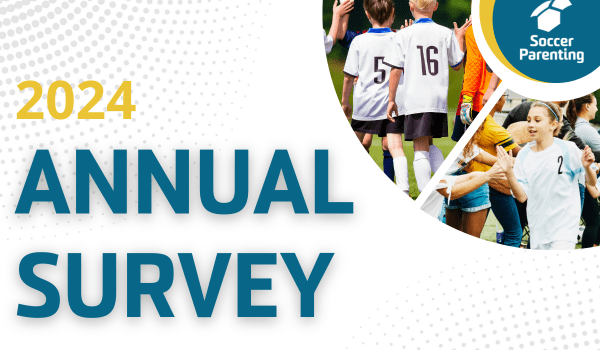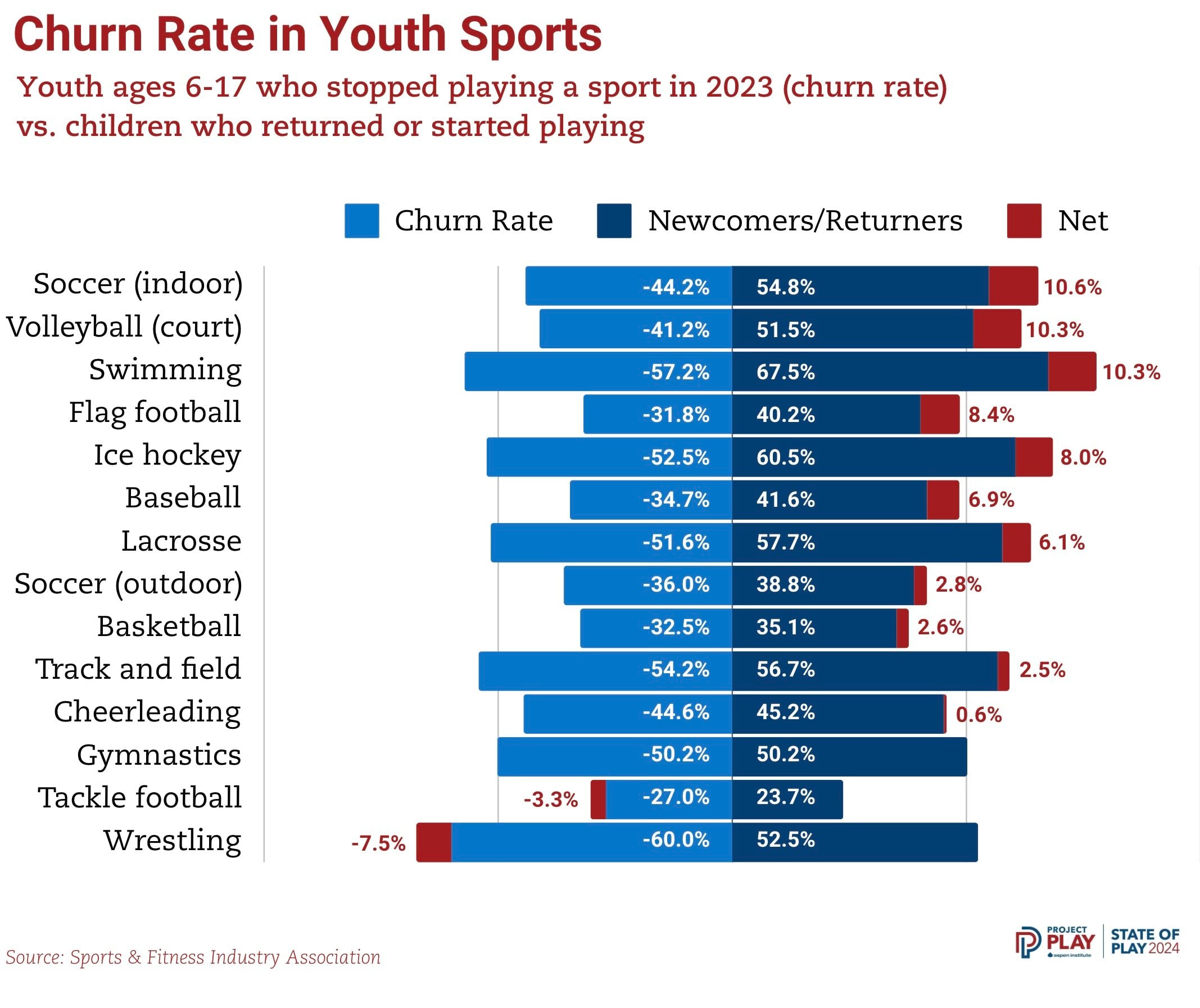There’s a saying kids used to use on the playground when someone was taunting them: “Sticks and stones may break my bones, but words will never hurt me!”
Not only has that been disproven, but studies have shown that while external wounds may heal, the negative impact of certain words may last much longer and internally create scars that don’t seem to heal.
Looking deeper, It’s not usually the words you were called that keep you feeling bad about yourself. It’s your self-talk, what you keep saying to yourself about the words, that re-wounds you.
Your choice of words can make the difference between feeling locked in a negative spiral without hope of change or feeling free and open to new possibilities.
As a soccer parent, you may already be coaching your son or daughter about self-talk to help them through soccer season.
Are you remembering to coach yourself at work in the same way? When you’re asked to give a presentation, for example, are you applying what you’re teaching your kids to yourself?
Here are 3 secrets to using self-talk to inspire new ideas that can help support you and your kids.
1) Make the choice to interpret an event in a way that helps you move forward
Let’s take the example of a physical occurrence in your body that can have very different meanings: goose bumps. People usually associate them with fear or excitement, or a little of both.
If you see and feel them and think: “I’m afraid” you might choose behavior to protect yourself. In your life, if you start identifying with fear, it can become a habit. The repetition of fear literally grooves a deeper fear pathway in your brain, so you keep going back to it.
At work, even though it could advance your career, you might avoid giving a presentation, because your boss made a negative comment about something in the last one.
While playing soccer, after missing last time, your child might be afraid to take that open shot to score a goal.
What if you thought of those goose bumps as excitement? What if that meaning evoked a sense of adventure you wanted to be part of? Even suggesting that you think you might be excited can start to help you feel more open.
At work, you retool your next presentation and feel curious and excited about being more effective.
At the big game, your kid is thrilled to have another chance to score a goal and takes the shot.
These are very different outcomes just in making different meaning about the same occurrence: goose bumps!
2) Let go of ‘black and white’ thinking to make room for new outcomes
When you think and talk to yourself in absolutes, “I always” or “I never”, not only are you not being accurate (I made some mistakes, but also succeeded in some ways), but you may be locking yourself into a moment of behavior and framing it as if you have no possibility to change.
My boss points out a part of my talk that wasn’t clear to her. I say to myself, “I always mess these things up.” “I’m a failure at giving presentations”
Your child missed making the goal for the team and tells themself “I’m a loser and “I’ll never be any good at this.”
When you talk this way to yourself, feel what that’s like in your body, mind and breathing. Do you feel expanded in your thinking or more shut down to possibilities?
Now, shift your language to describe rather than characterize and include more nuanced thinking. Try replacing ‘never’ and ‘always’ with phrases like:
-Up until now…
-Right now’…
-I can’t remember a time…
-For awhile now…
-I’m temporarily experiencing…
At work, you say to yourself, “I realize that was only a small part of what I presented and the rest my boss liked. Right now, I’m looking forward to finding language that better describes what I mean and increasing my skill at presenting.”
Now, feel what this version is like in your body, mind and breathing.
Playing soccer: Your kid missed making the goal for the team and now says to themself, “Up until now, I haven’t scored a goal, but I’m going to keep practicing and look for another opening."
3) Use ‘I’ statements to give yourself the choice to help influence change
While many factors lead to what happens in your life, you have a big influence on how you think and feel about something, and sometimes, on what happens.
If you can’t ‘locate’ yourself, ie: your thoughts, feelings and behavior when describing what happened, how can you help shift it?
At work, rather than saying, “The presentation didn’t happen”, as if outside elements led to that, and you were helpless in the matter, ask yourself if you had some influence on the result. If so, you might discover something when you include yourself in the thought:
“I’m realizing I was afraid of making another mistake and kept telling my boss I had too much other work to do.
As you realize the presentation didn’t happen because you acted like you weren’t available to give it, you can let her know that you’d now be available to present.
Take a moment to compare. How do you feel in your body, mind and emotions when you say, “the presentation didn’t happen” Do you feel engaged or somewhat detached? What’s your breathing like? Is it deep, shallow or neutral?
Now, include yourself in the situation and try adding open ended phrases like “I’m curious” or “I’m wondering” to help move you forward with more of a sense of options:
“I lost my confidence and kept putting my boss off and can now let her know she can schedule the presentation. I’m wondering what might be a more effective way to make that section of my talk clearer and am curious what I’ll come up with.”
Do you experience any difference in your body, mind and emotions when you say it this way?
In playing soccer, see if your child can feel the difference between saying to themself, “We didn’t score” and including themself in the thought:
"I froze in that moment and didn’t take the shot. I wonder how I can position myself next time to get access to the ball.”
Open and affirming self-talk can allow you and your kid to go for the goal, both literally and figuratively, even if you don’t initially succeed. Just because something didn’t happen in this moment, doesn’t mean it won’t happen in the next. These words and phrases offer a kinder, more open-ended way to talk to yourself, so you’re more likely to keep going and get the results you’d like.
I invite you to use these methods and see what happens. Even a small shift in the words you choose may help you move forward with more confidence.
If you have any questions or experiences you’d like to share while using the methods, please write them in the comments below or contact me: bodywisdomhealer@gmail.com
Lorrie Berg is a writer, speaker and stress relief specialist in the San Francisco Bay Area. With over 30 years of experience, she enjoys helping people feel more vibrant and effective in day-to-day living. https://lorrieberg.com
MOST RECENT
-
 Soccer Parenting SurveyA Message from our friends at Soccer Parenting : As 2024 comes to a close, it’s time for our Annual Survey —and we’re aiming for read more... SFYSYAC
Soccer Parenting SurveyA Message from our friends at Soccer Parenting : As 2024 comes to a close, it’s time for our Annual Survey —and we’re aiming for read more... SFYSYAC -
 How do YOU make soccer/sport possible for your player(s)?2024 has been an exciting year for San Francisco Youth Soccer! We are honored and proud to have been this year nationally read more... LOCAL SOCCER
How do YOU make soccer/sport possible for your player(s)?2024 has been an exciting year for San Francisco Youth Soccer! We are honored and proud to have been this year nationally read more... LOCAL SOCCER -
 Messages from the sidelineI just posted this to the Coaches section of the portal, and posting here for parents as well, because yelling constantly from read more... PLAYSFYS
Messages from the sidelineI just posted this to the Coaches section of the portal, and posting here for parents as well, because yelling constantly from read more... PLAYSFYS -
 #PlayItForwardLooking for an environmentally friendly way to get rid of that gear that your player has outgrown or those size 3 soccer balls read more...
#PlayItForwardLooking for an environmentally friendly way to get rid of that gear that your player has outgrown or those size 3 soccer balls read more... -
 State of Youth Soccer webinar (from Soccer Parenting)Soccer Parenting is hosting a webinar titled "State of Youth Soccer (Parents!) and Q&A" on February 20 at 9:00 am PST. read more...
State of Youth Soccer webinar (from Soccer Parenting)Soccer Parenting is hosting a webinar titled "State of Youth Soccer (Parents!) and Q&A" on February 20 at 9:00 am PST. read more...
